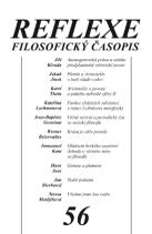Some constitutive Characteristics of Plato’s „Timaeus“
In giving an exposition of the principles and elements that constitute the cosmos and human beings, as they are presented in the Timaeus, the paper emphasizes the course and method of Plato’s account. It raises the question whether Plato’s description of the cosmogenesis ought to be read literally or not, and lists some textual discrepancies that would lead us to accept a non-literal reading. However, the decisive reason for choosing a genetical account is a pedagogical one: the Timaeus shows the place of humans in the cosmos and reveals the principles that shall rule in both of these essentially processual entities.
Backlinks: Reflexe 29
